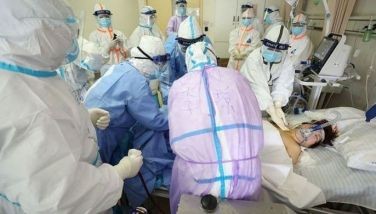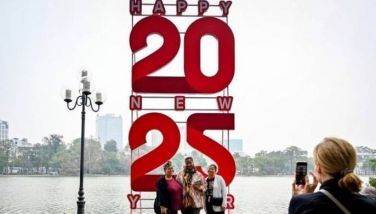Eurozone retail sales in unexpectedly big slide
LONDON — Disappointing retail sales figures are likely to reinforce concerns at the European Central Bank that the eurozone economic recovery is failing to gain momentum at a time when inflation is stubbornly low.
Official figures released yesterday — a day ahead of a highly anticipated ECB policy meeting — showed retail sales across the 18-country eurozone suffered their biggest drop in over two and a half years in the crucial shopping month of December.
Eurostat, the EU's statistics agency, said retail sales fell 1.6 percent in December, more than offsetting the previous month's 0.9 percent rise.
That was way worse than the 0.5 percent fall anticipated in the markets and represented the biggest monthly decline since May 2011. The drop, which means retail sales in the eurozone ended the year 0.9 percent lower than where they started, was broad-based, with the region's top-two economies faring particularly badly. Germany saw a sharp 2.5 percent monthly decline while France posted a 1 percent drop.
Retail sales are a major component of economic output across the region and the December figures may raise concerns that the eurozone recovery did not accelerate in the fourth quarter as many had anticipated.
On Feb. 14, Eurostat will publish its first estimate for economic growth in the eurozone in the final three months of the year. Most economists had expected a quarterly growth rate of 0.3 percent, a modest improvement on the previous quarter's paltry 0.1 percent. But with retail sales down 0.7 percent during the October to December period, those forecasts may now be in doubt.
"We think the recovery for the economy as a whole continues, but at an anemic pace," said James Ashley, senior European economist at RBC Capital Markets.
The figures will also likely ratchet up the pressure on ECB officials to ease monetary policy further at their monthly meeting on Thursday to shore up the recovery.
As well as fretting about growth, the ECB has another headache — the possibility of a debilitating bout of Japanese-style deflation. At an annual rate of 0.7 percent, consumer prices are rising at a far slower pace than the ECB's target of just below 2 percent.
If prices were to start falling across the eurozone for a sustained period of time, it would jeopardize the already-muted recovery. Deflation can make consumers delay spending in the hope of getting cheaper bargains down the line as well as making businesses reluctant to invest and innovate.
If the ECB were to do more at Thursday's meeting, analysts reckon the most likely action would be a cut in the benchmark interest rate to a record low of 0.10 percent from the current 0.25 percent. In theory, that could help hard-up households and businesses, which could stimulate the economy and get inflation back towards target.
A broad range of economic indicators have shown that the recovery in the eurozone has continued into the new year but that it's not amounting to much.
A survey yesterday from financial information company Markit reinforced that view. Though its purchasing managers' index — a broad gauge of business activity — rose to its highest reading since June 2011, it was lower than anticipated.
Markit said its composite PMI, which incorporates the manufacturing and services sectors, was 52.9 in January, up from December's 52.1 percent but down on a preliminary estimate of 53.2 issued last month. Still, at just above the 50 mark that separates growth from contraction, the figure suggested a mild rise in activity.
"The upshot is that whilst the PMI suggests that the wider economic recovery picked up at the start of the year, growth will still be too weak to solve the region's debt and unemployment problems," said Jonathan Loynes, chief European economist at Capital Economics. "Accordingly, a consumer-led recovery does not seem likely."
- Latest
- Trending































